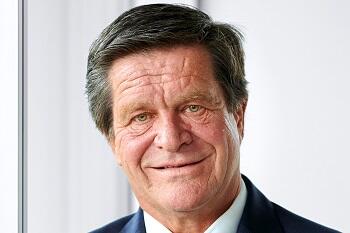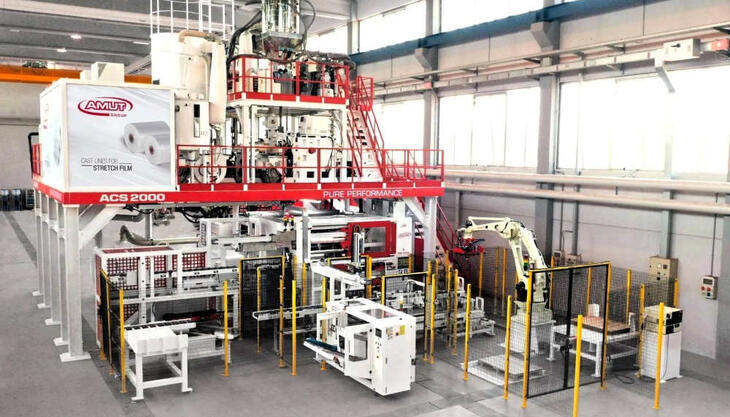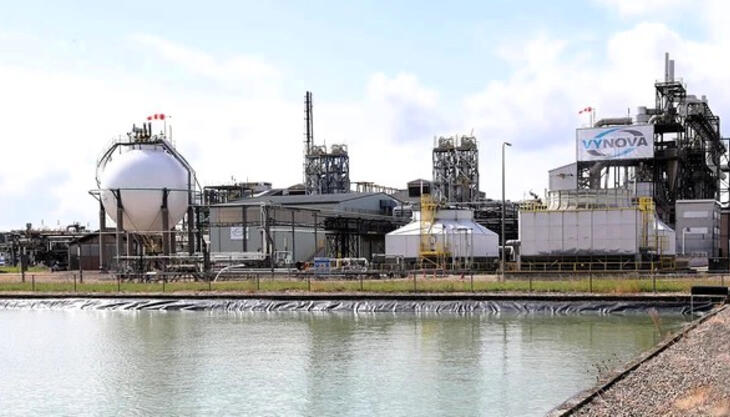Rapid recovery for German manufacturers after the challenges of the coronavirus pandemic

German manufacturers of plastics and rubber machinery can look back positively on 2020: a year marked by the coronavirus, and despite the exceptional overall situation. "After a difficult start, which was characterised by major challenges including a lockdown, incoming orders showed a rapid increase from the summer onwards", Ulrich Reifenhäuser (top picture), Chairman of the Plastics and Rubber Machinery Association in the VDMA, was pleased to report. This was particularly noticeable in those sectors where hygiene is important, i.e. mainly in the packaging and medical industries.
In addition, the automotive industry has started to invest again following years of restraint. On top of that, the construction industry has been booming for some time. "All this resulted in a 7% increase in incoming orders compared to 2019, making plastics and rubber machinery manufacturing one of the few machinery sectors to close out 2020 with fuller order books than in 2019", Reifenhäuser explains. In terms of sales, however, plastics and rubber machinery manufacturers witnessed a 12% decrease compared to the previous year, as they were still dominated by the negative trends of 2019 and the start of 2020.
In the first four months of 2021, order intake, recording an increase of 92%, was even almost twice as high as in the same period of 2020, and sales have also stabilised, showing a rise of 8%.
"Economically, the industry is currently doing very well again", says Thorsten Kühmann (bottom picture), Managing Director of the Plastics and Rubber Machinery Association. "However, this also has its downsides in the strained supply chains, with regard to availability of necessary raw materials and components", he says, advising caution. "In particular, the bottlenecks in the supply of plastics - which is impacting the willingness on the part of manufacturers to invest - as well as in the sector of metals and electronic components, could soon lead to the paradoxical situation of machine manufacturers having to curb production despite full order books".
 With a view to foreign markets, exports by German plastics and rubber machinery manufacturers fell by a total of 11% in 2020. However, deliveries to the USA, where the investment situation proved to be very robust, increased by 8%. As a result, the USA once again took top position among the most important German countries of delivery for plastics and rubber machinery. China followed in second place with slightly declining exports (minus 3%). However, local production of plastics and rubber machinery - including that of foreign manufacturers - is operating at full speed, as demand there is surging. All in all, this means that China remains the most important sales market for German plastics and rubber machinery.
With a view to foreign markets, exports by German plastics and rubber machinery manufacturers fell by a total of 11% in 2020. However, deliveries to the USA, where the investment situation proved to be very robust, increased by 8%. As a result, the USA once again took top position among the most important German countries of delivery for plastics and rubber machinery. China followed in second place with slightly declining exports (minus 3%). However, local production of plastics and rubber machinery - including that of foreign manufacturers - is operating at full speed, as demand there is surging. All in all, this means that China remains the most important sales market for German plastics and rubber machinery.
The remaining BRIC countries Brazil, Russia and India also play an important role in the supply of German plastics and rubber machinery. All of them are among or near the top 20 of the most important customer countries, with the BRIC countries holding a total share of 23% of worldwide deliveries of German plastics and rubber machinery. The importance of these four countries is also reflected in the fact that the VDMA operates its own branches there, in order to be closer to the markets and the members on the spot. The underlying network concept has resulted in a large international community within the VDMA.
Driven by strong incoming order volumes, many companies in the plastics and rubber machinery sector expect record results this year. The trade association forecasts a sales increase of at least 10%. In addition, the mega trends of circular economy and climate protection through CO2 reduction, in conjunction with digitalisation remain the defining themes - also at next year's K trade fair. Here, the plastics and rubber machinery manufacturers have positioned themselves well, presenting innovations that offer solutions for pressing issues, and they are accordingly optimistic about the future outlook.



















